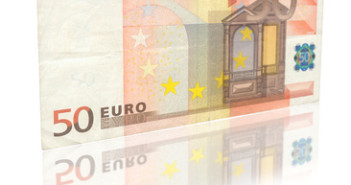EUR/USD has moved higher, but is volatile as the markets reacted enthusiastically to the news out of Washington that both the Senate and the House of Representatives had approved an agreement on fiscal cliff. Although the deal is only temporary and does not deal with a budget ceiling and spending cuts, it does provide some short-term certainty, which is positive for market sentiment. Markets in Europe and the US are back in action after the New Year’s Day break. There was good news out of Italy, where Manufacturing PMI hit a nine-month high. Today’s highlight is US ISM Manufacturing PMI.
EUR/USD Technical
- Asian session: Euro/dollar was up sharply, and reached a high of 1.3299, before conslodating at 1.3278. The pair has edged lower in the European session.
- Current range: 1.3240 to 1.3290.
Further levels in both directions:Â 
- Â Below: 1.3240, 1.3180, 1.3130, 1.3110, 1.30, 1.2960, 1.2880, 1.28, 1.2750, 1.2690, 1.2624, 1.2590, 1.25 and 1.2440.
- Above: 1.3290, 1.3350, 1.34, 1.3480 and 1.36.
- There is weak resistance at 1.3290, as the pair tested this line but failed to break through.
- 1.3240 has strengthened as a support line as EUR/USD pushes higher.
Euro/dollar jumps after fiscal cliff agreement – click on the graph to enlarge.
EUR/USD Fundamentals
- All Day: German Preliminary CPI. Exp. +0.7%.
- 8:15 Spanish Manufacturing PMI. Exp. 44.9 points. Actual 44.6 points.
- 8:45Â Italian Manufacturing PMI. Exp. 45.4 points. Actual 46.7 points.
- 9:00 Eurozone Final Manufacturing PMI. Exp. 46.3 points. Actual 46.1 points.
- 14:00 US Final Manufacturing PMI. Exp. 53.2 points.
- 15:00 US ISM Manufacturing PMI. Exp. 50.2 points. See how to trade this event with USD/JPY.
- 15:00 US Construction Spending. Exp. +0.6%.
- 15:00 US ISM Manufacturing Prices. Exp. 51.4 points.
For more events and lines, see the EUR/USD
EUR/USD Sentiment
- US lawmakers hammer out fiscal cliff deal:  With the US about to topple over the fiscal cliff, Congress pulled out all the stops and managed to cobble together a last minute agreement to avert the crisis. Both the Senate and House of Representatives passed the deal by large margins, although there was plenty of grumbling on both sides of the political divide. The agreement permanently extends tax cuts for all earners up to $450,000 and retains other tax breaks for individuals and businesses.
- Fiscal Cliff averted, for now: Markets rallied and the euro pushed higher following the last-minute agreement on the fiscal cliff. However, the euphoria could be short-lived, as the See how to trade this event with USD/JPYWith Republicans and Democrats far apart on these issues, we could see another fiscal cliff crisis erupt next month.
- US economy – up, down, or both?: As we start 2013, a look at recent key US releases points to a mixed and confusing picture. Unemployment Claims looked sharp as we wrapped up 2012, but Consumer Confidence fell to five-month low. New Home Sales failed to meet the estimate, but Pending Home Sales surprised the markets with a strong gain. Although there are signs that the US economy is improving, this zig-zagging makes it difficult to predict what to expect in early 2013.
- Italians to vote in February: It was not a quiet Christmas break on the Italian political scene, as Italian Prime Minister Mario Monti announced his resignation. Italians will go to the polls in February, and with the third largest economy in the Eurozone in trouble, the political instability could hurt the high-flying euro. Monti is widely credited for steering the Italian economy through rough waters in 2012, but his popularity has suffered due to the harsh austerity measures he has implemented. The markets will be busy monitoring developments in Italy, as the country continues to struggle with a weak economy and huge public debt.
- Euro strong, but Eurozone not: The euro may be looking good ,but the same cannot be said about the Eurozone economies. It was a tough year for the Eurozone, with the debt crisis and a near Grexit sending economic shock waves throughout the continent. Greece and Spain are struggling, even with bailout funds, and Italy and France are facing tough times as well. With these major economies facing small or even negative growth, there may not be a lot to cheer about in the early part of 2013. Germany, the economic locomotive of Europe, is in better shape, but is suffering from slower growth and higher unemployment. On the bright side, there has been significant progress in the Greek debt crisis, as aid is again flowing to Athens. As well, a framework has been agreed upon concerning a greater supervisory role for the ECB, with the goal of minimizing the impact of future banking crises in the Eurozone. As for the euro, it’s unlikely that that the currency can sustain these levels against the dollar if the EZ economies continue to struggle and growth fails to improve.



